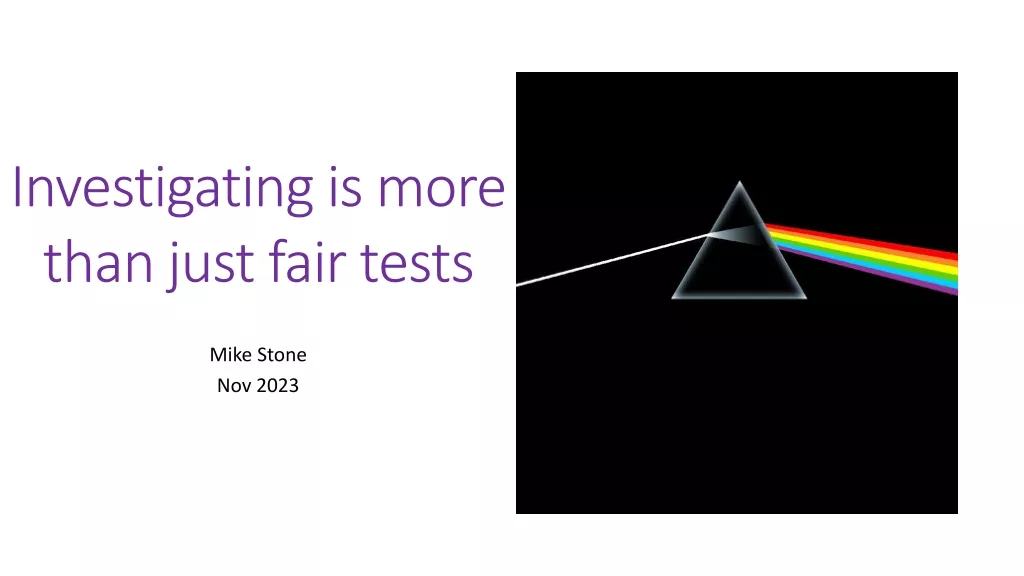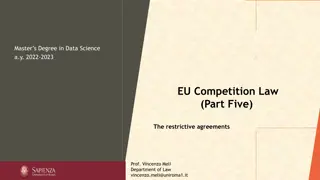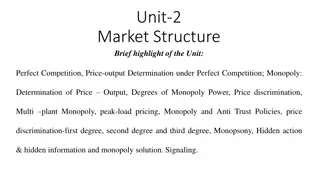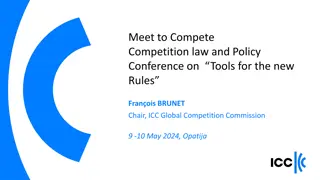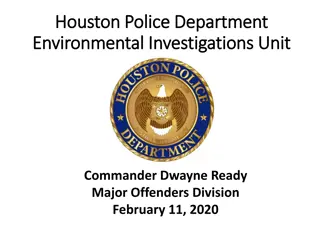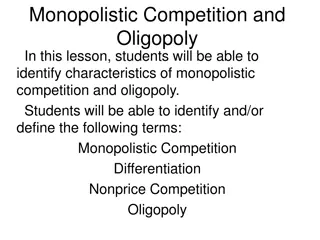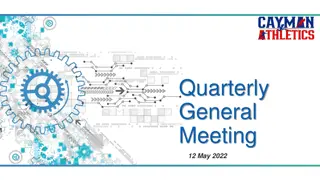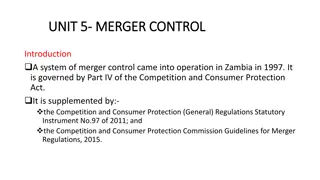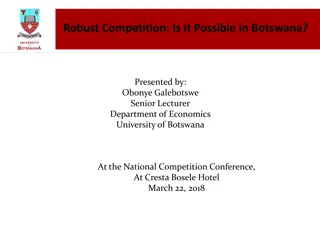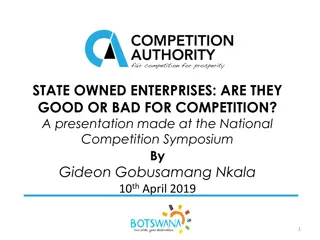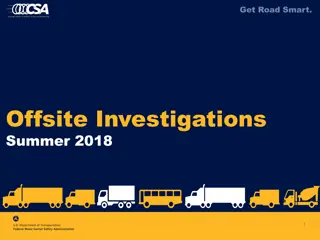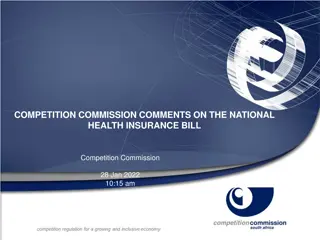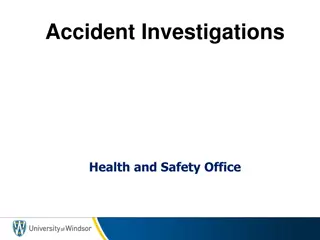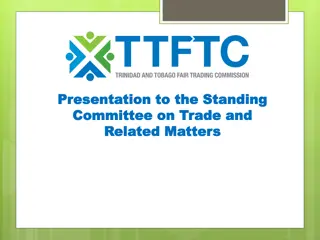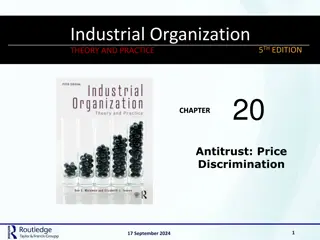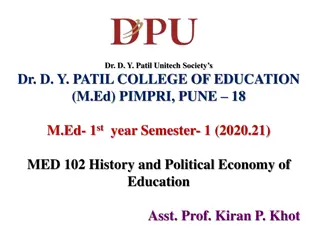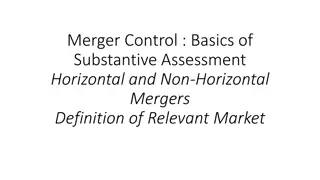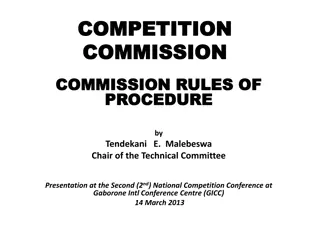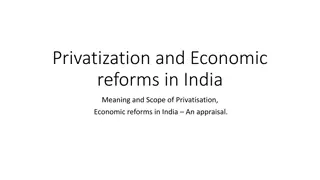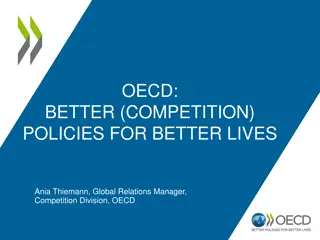Commission's Power to Require Undertakings in Competition Investigations
The content discusses the conditions and limits of the European Commission's power to demand information from companies during competition rule investigations. It outlines key legal proceedings related to requesting information, judicial confirmations, and communication protocol between the Commission and companies involved. The European Court of Justice plays a crucial role in upholding procedural transparency and investigative accuracy.
Download Presentation

Please find below an Image/Link to download the presentation.
The content on the website is provided AS IS for your information and personal use only. It may not be sold, licensed, or shared on other websites without obtaining consent from the author. Download presentation by click this link. If you encounter any issues during the download, it is possible that the publisher has removed the file from their server.
E N D
Presentation Transcript
Alfonso Lamadrid, Principal Associate 22 April 2016, Brussels
2008&2009:Commissionconducts cement companyinspections December 2010:Commissiondecisiontoinitiateproceedings March 2011: Commission decision requesting information under Art. 18 Reg. 1/2003 107 pages in length, including 67 pg. questionnaire, with several 100s of questionsand sub-questionsinrelation to, literally,millionsof data Reply within 12 weeks; requested extensions notgranted (apartfromone after appeal was lodged) Appealslodgedagainst RFI 29 July2011:GeneralCourt order rejecting request for interimmeasures 14 March 2015: General Court judgments (T-292/11, T-293/11, T-296/11, T- 297/11,T-302/11,T-305/11andT-306/11) 31July2015:Closureofinvestigation 15 October 2015:AG Wahl opinions 10March2016:ECJjudgments 4
What are the conditions for, and limits to, the Commission s power to require, by way of decision, undertakings to supply information in the context of investigation relating to competition rules? possible breaches of EU Opinion of AG Wahl, para. 1 6
The Court confirmed that it is for the Commission to decide what information it considers necessary to request from companies when investigating potential anticompetitivepractices Commission press release of 14 March 2014, following GC judgment the implications of thejudgments arelikelyto beconfined to the present case,as the ECJpronounced itselfonly on the issueof reasoning Commission spokesman, 31 July 2015, following ECJ judgment 7
Although the Commission is not required to communicate to the addressee of a decision ordering an investigation all the information at its disposal concerning the presumed infringements, or to make a precise legal analysis of those infringements, it must none the less clearly indicate the presumed facts which it intendsto investigate. Hoechst AG v Commission (c-46/87 & c-227/88), para. 41 in a decision ordering an investigation, the Commission must clearly indicate the presumed facts which it intends to investigate . This serves to ensure that the Commission does not carry out investigations on a speculative basis, without having any concrete suspicions, a practice for which the English term fishing expeditions is often used. Opinion of AG Kokott in Solvay SA v Commission (c-109/10 p), para. 138 10
Prysmian(T-140/09)andNexans(T-135/09)- rendered after writtenphase it is not enough for the information requested to be connected with the subject- matter of the inquiry. What is also necessary is that an obligation imposed on an undertaking to supply an item of information should not constitute a burden on that undertakingwhich isdisproportionate to the requirementsof the inquiry SEP v Commission (T-39/90) para. 51 11
Most companies alleged in their appeals that the RFI lacked a proper statementof reasonsandthat it was not proportional. In those cases the GC ruled(T-292/11, T-293/11, T-297/11,T-302/11, T-305/11 & T-306/11): that although it is true that the presumed infringements [were] set out in very general terms which might well have been made more precise , they have the minimum degree of clarity in order to be able to be considered to be consistentwith therequirements ofEUlaw;and that even if the size of the workload caused by the volume of information and the very high degree of precision in the response format imposed by the Commission cannot be reasonably disputed , that workload was not disproportionate in the light of the necessities of the enquiry and the extent ofthe presumed infringements. ThecontentoftheJudgment intheseventhcase(T-296/11)isdifferent . 13
IncaseT-296/11(CementosPortlandValderrivas)the GeneralCourt stated: Even though Commission not obliged to disclose to companies preliminary evidence at its disposal, must have enough evidence to justifythe information request(paras.38-40) Itaccepted that wehad put forward factorscapableof casting doubt on the sufficiently serious nature of the evidence concerned requested Commission to produce a summaryof its file(paras.23-26) On the facts: the light of Commission s file, the latter could have validly addressed theexhaustive(andexhausting!)RFIto theapplicant. Even if applicant did offer alternative interpretation of elements in file, Commission cannot be asked at preliminary stage to have evidence so consistentas tobe sufficient toestablish an infringement(para.59) Enough to have evidence that at preliminary stage and absent third party contextualization wouldhavearousedreasonable suspicion. 14
Statementof reasons Observesthat even GC acknowledgeditwas succinct Flexible: Can be implied/indirectly found in context and questions asked, but no connectingthread to be found givennumber and variety of questions If intention was to do whole mapping of companies activities to process with econ. toolsthen doubtful that appropriateunder Art. 18. Early vs. advanced stage of investigation Necessity (Heidelberg,paras. 70-93) the criterion of necessity of information is to be assessed in the light of the indicia at the Commission s disposal, and failing any concrete indicia constituting reasonable grounds for suspicion, the adoption of an [RFI] may be considered to be an arbitrary measure ofinvestigation the existence and sufficiency of indicia can be subject to judicial review Commission may be required to disclose the evidence on which it based its grounds for suspicion (citesT-296/11, Cementos Portland) GC wrong to consider that necessity is satisfied when there is a connection between the info requested and the presumedinfringement 16
Proportionality and others Can the ECrequireinformationto be providedina givenspecificformat? AG s balanced take: cannot provide info in a chaotic, unsystematic or fragmented manner , but limit is not forcing them to complete tasks which belong to the buildingof a case by the Commission sstaff. Reasonable time-limitsto respond? Means available to the undertaking relevant. Vagueness of questions? AG criticizes the GC s finding that the relative vagueness of some questions could not be considered a violation of the principle of legal certainty, but relevant in reviewing decision imposing a fine for supplying a vague answer. GC should have reasoning for (i) annulled the specific questions it thought were vague and; (ii) identifywhich were those questionsand why they were vague. Self-incrimination: questions that are purely factual can also, in certain circumstances, breach the rightagainst self-incrimination 17
ECJs ruling confined to statement of reasons (due to procedural economy reasons; only plea common to allappeals) Since the Commission did not clearly indicate the subject of its investigation , alleged infringements or suspicions that it intends to investigate , the parties and the Commission were not in a position to determine whether that information was necessary in the sense of Art18 of Regulation1/2003. The fact that ECJ did not rule with regard to other pleas should not obscure theirrelevance; Unclear on necessity test (e.g.paras.24- 27 Heidelberg) Even if not definitevely settled, the case (notably AG) has shed useful light; Implications of the case wider than ECJ s ruling, and likely to influence future enforcement 19
www.garrigues.com Alfonso Lamadrid | Principal Associate Garrigues, Brussels alfonso.lamadrid@garrigues.com
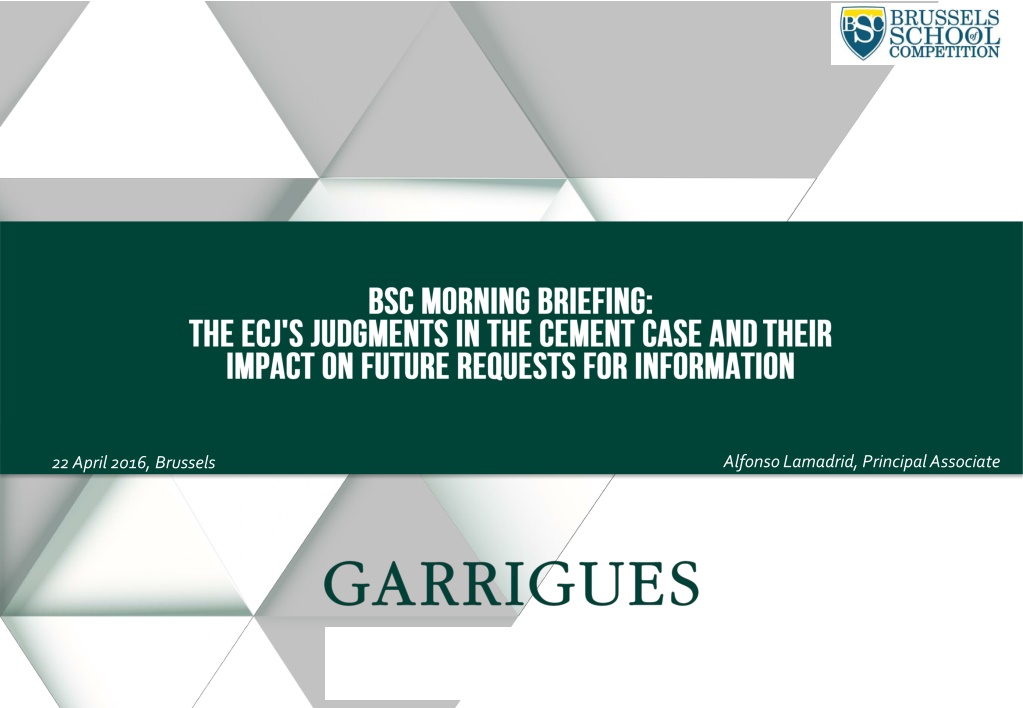
 undefined
undefined










